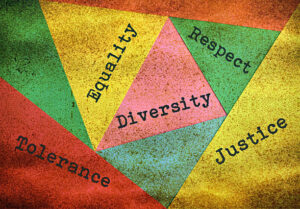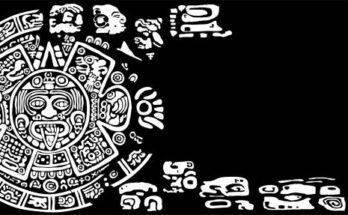Religion has played a central role in human societies for millennia, influencing our values, ethics, and moral standards. One of the most intriguing aspects of this influence is the way it shapes our perception of crime, punishment, and forgiveness. In this article, we will explore the intricate relationship between religion, crime, and the concepts of forgiveness and punishment.
Religion and Morality
 (Photo from iStock)
(Photo from iStock)
To understand the connection between religion and crime, we must first acknowledge the profound impact of religious beliefs on human morality. Most of the world’s major religions, including Christianity, Islam, Judaism, Hinduism, and Buddhism, provide followers with a moral framework that guides their actions. These moral codes often include principles like honesty, compassion, and the prohibition of actions that harm others, such as theft, murder, and adultery.
Within the context of religion, morality serves as a fundamental guide for ethical behaviour. The religious texts and teachings establish the foundation for a moral compass that informs adherents about what is right and wrong. This, in turn, plays a pivotal role in shaping societal values and expectations.
The Role of Religion in Crime Prevention
Religion has long been associated with crime prevention. The moral teachings and principles found in religious texts encourage adherents to avoid unethical behaviour and criminal acts. For example, the Ten Commandments in the Bible explicitly prohibit actions like theft and murder, and they serve as a moral guideline for millions of Christians worldwide. Similarly, the Islamic faith prescribes strict ethical guidelines and laws that discourage crime.
Religious communities often provide a strong sense of belonging and support, which can deter individuals from engaging in criminal behaviour. The fear of divine punishment and the social stigma associated with violating religious principles can act as powerful deterrents.
Forgiveness in Religious Contexts
 (Photo from iStock)
(Photo from iStock)
One of the most distinctive features of religious teachings is the concept of forgiveness. Many religions promote the idea of forgiving those who have committed wrongdoings, emphasizing the power of redemption and reconciliation. This concept of forgiveness can have a profound impact on how societies view crime and its consequences.
Christianity, for instance, teaches the importance of forgiveness, drawing from the teachings of Jesus Christ. In the Lord’s Prayer, Christians recite the words, “Forgive us our trespasses as we forgive those who trespass against us.” This prayer encapsulates the Christian belief in the importance of forgiving others in the same way one wishes to be forgiven by God.
Forgiveness in Criminal Justice
The concept of forgiveness extends to the realm of criminal justice. In many societies, the idea of restorative justice incorporates elements of forgiveness. Restorative justice focuses on repairing the harm caused by a crime, addressing the needs of victims, and rehabilitating offenders. It often involves dialogue and reconciliation between the victim and the offender.
Religious values and teachings can play a significant role in promoting restorative justice. The emphasis on forgiveness in religious texts can inspire individuals to seek reconciliation and healing, rather than merely seeking punitive measures. This approach aims to break the cycle of violence and retribution, fostering a more compassionate and humane justice system.
The Power of Forgiveness
The concept of forgiveness, when applied in the context of crime, can have transformative effects. It offers a path to healing and redemption for both victims and offenders. Here are some ways in which forgiveness can be a powerful force in the criminal justice system:
- Victim Healing: Forgiveness can provide a sense of closure and emotional healing for crime victims. By forgiving their offenders, victims can release the burden of anger and hatred, allowing them to move forward with their lives.
- Offender Rehabilitation: Forgiveness can motivate offenders to confront the consequences of their actions and seek redemption. It can be a catalyst for personal growth and rehabilitation, steering individuals away from a life of crime.
- Reconciliation: In cases of non-violent crimes, forgiveness can pave the way for reconciliation between victims and offenders. This process can promote understanding and empathy, fostering a sense of community and reducing the likelihood of recidivism.
- Community Cohesion: Forgiveness has the power to mend the fabric of communities affected by crime. By promoting forgiveness and reconciliation, communities can come together to support both victims and offenders in their paths towards healing and reintegration.
Punishment in Religious Contexts
 (Photo from iStock)
(Photo from iStock)
While forgiveness is a central theme in many religious teachings, so too is the concept of punishment. In religious contexts, punishment often takes the form of divine retribution or consequences for violating religious laws. These consequences may be delivered in this life or in the afterlife, depending on the specific religious belief system.
In Christianity, the concept of divine punishment is rooted in the idea of sin and salvation. The Bible teaches that those who do not repent and seek forgiveness may face eternal punishment in hell. This belief in divine justice serves as a deterrent for many Christians, encouraging them to follow the moral teachings of their faith.
In Islam, there is a strong belief in divine judgment and accountability. Muslims are taught that their actions will be evaluated by Allah on the Day of Judgment, and those who have committed sinful acts may be subject to punishment.
Balancing Forgiveness and Punishment
The concepts of forgiveness and punishment can sometimes seem contradictory, but they coexist in many societies and legal systems. Balancing these two elements is a complex challenge for policymakers and individuals involved in the criminal justice system.
Restorative Justice: Restorative justice, as mentioned earlier, offers a model that attempts to strike a balance between forgiveness and punishment. This approach recognizes the importance of holding offenders accountable while also emphasizing reconciliation and healing for both victims and offenders.
Conclusion
Religion has a profound impact on how societies perceive crime, punishment, and forgiveness. While religious teachings provide moral guidance that discourages criminal behaviour, they also emphasize the power of forgiveness and reconciliation. Balancing the concepts of forgiveness and punishment in the criminal justice system is a complex endeavour, often shaped by cultural, legal, and religious factors.




